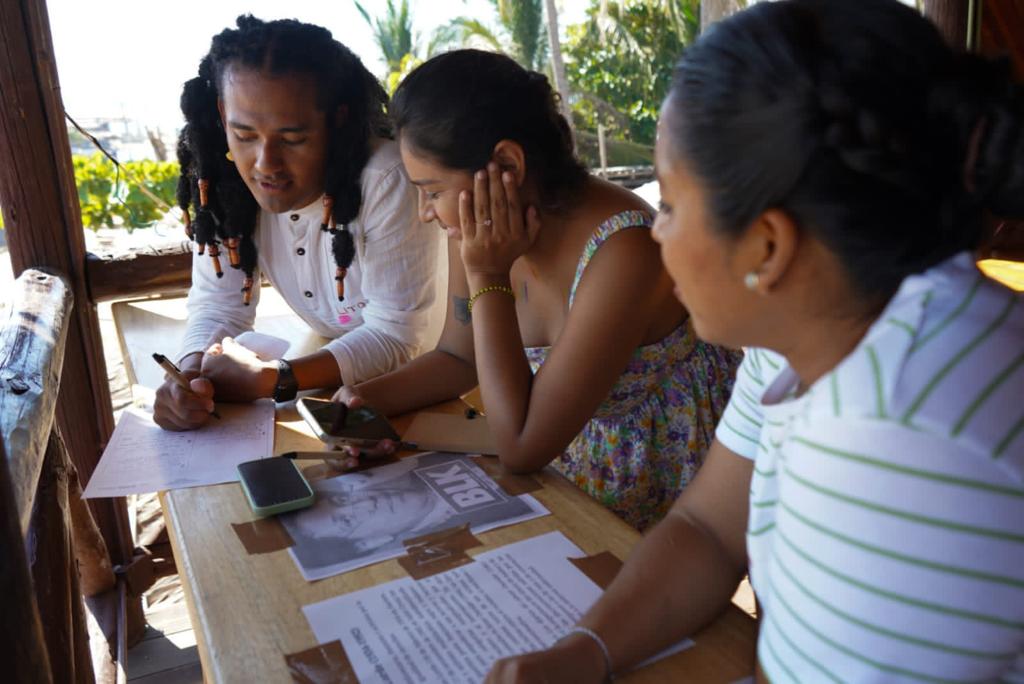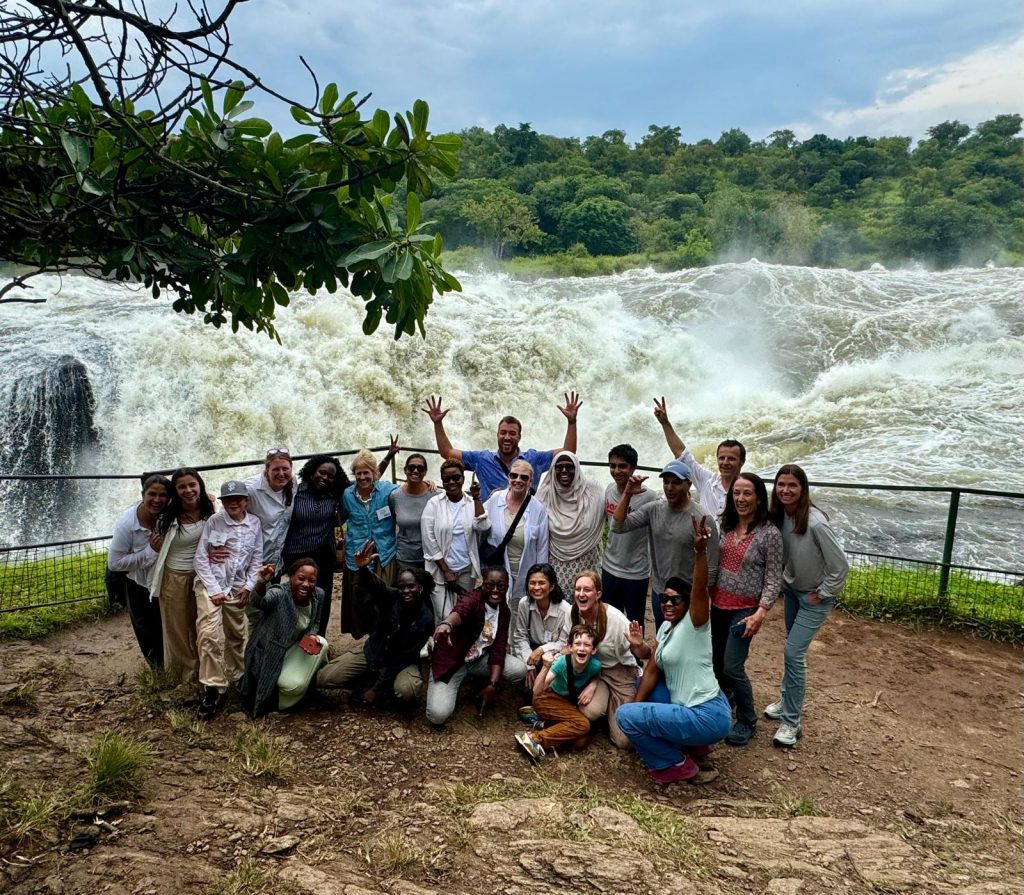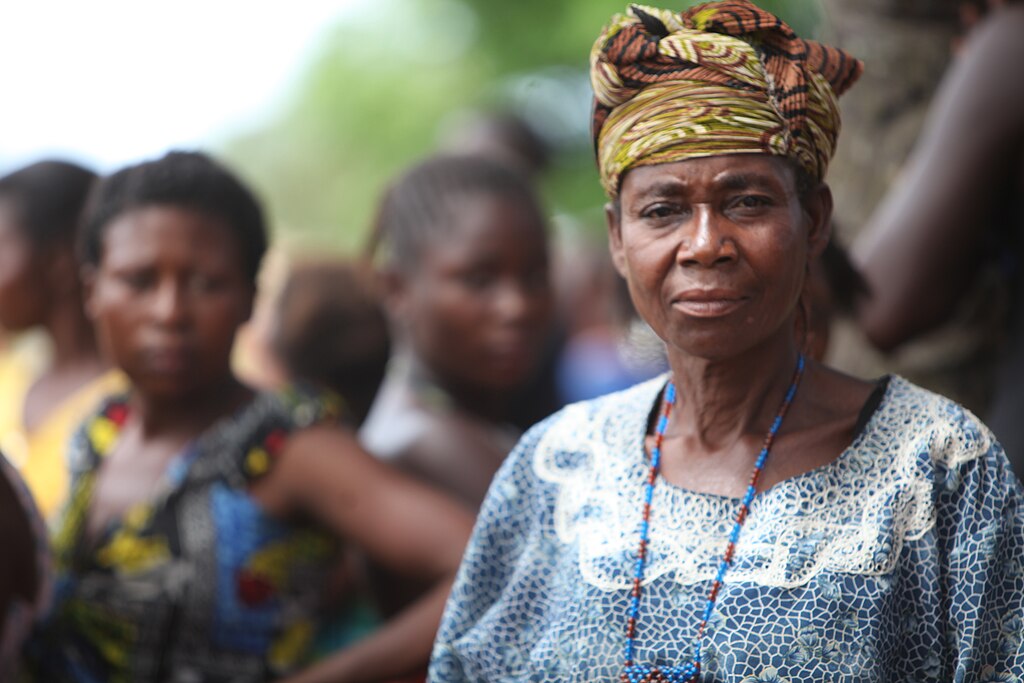Lessons Learned in Shifting Power to Support Movements
Supporting Abortion Rights in West and Central Africa
Deciding how to spend one million dollars may just be a dream for many people, but for a group of West and Central African feminist leaders, it was a reality.
They gathered in person for the first time in the seaside town of Kribi, Cameroon to celebrate a historic moment: together they made collective decisions to direct $1.2 million in grants to fund abortion rights movement work in their communities.
The West and Central Africa Abortion Rights “Movement Committee”—eight members from Benin, Cameroon, Guinea, and Côte d’Ivoire—is groundbreaking in two ways: they are the region’s first decision-making body for abortion rights funding with young leaders and comprised of all women in a context where abortion decision-making spaces across Africa are typically dominated by men.
“This is different from other global spaces I’ve been in,” said Caryn Dasah, one of the Movement Committee members representing Cameroon. “I am excited to shift power to communities and I am proud of this committee.”
The Context
Abortion rights in West and Central Africa
The abortion rights movement in West and Central Africa is collectively emerging and its potential is promising. In countries with laws that severely limit access to abortion, like Cameroon, Guinea, and Côte d’Ivoire, activists collaborate on advocacy while responding with direct services to attend to high numbers of unsafe abortions—the result of fewer accessible safe abortion services. In a country like Benin, which passed a law in 2021 to expand access to abortion, activists are organizing to ensure the new law is more than just rhetoric and is made into reality. This requires community education and bridging the abortion access gap. All this work requires sustained, flexible funding to cover costs, ranging from rent and salaries to transportation costs and office or medical supplies.
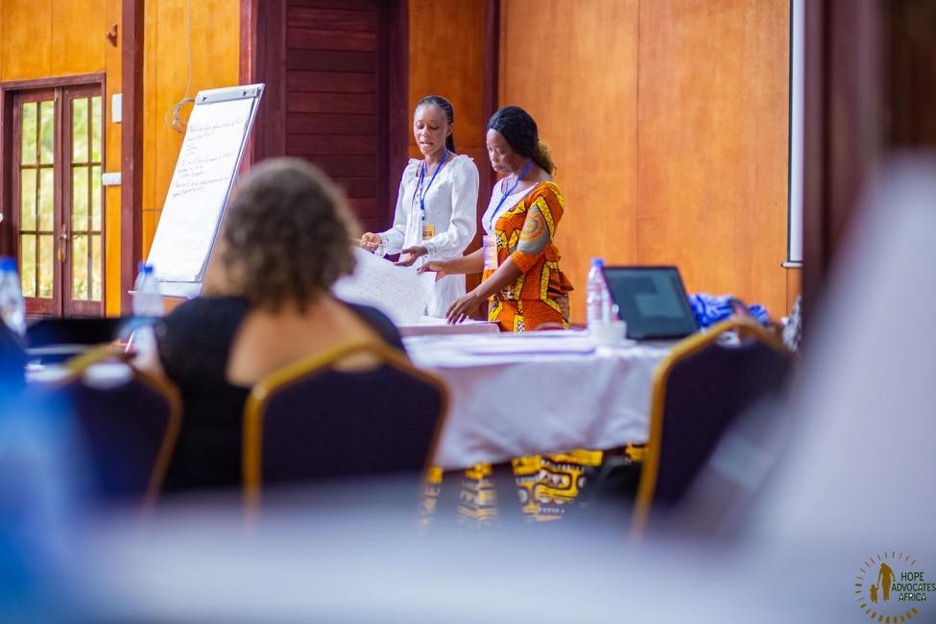
Coming together to plan for the future
During the three-day gathering in Kribi in July 2023, the Movement Committee shared updates about the status of abortion access in their countries, made funding recommendations, and defined what success looks like, including how to track progress on their own terms, seeding their strategic intentions and visioning for the future.
They also spent quality time together over hearty, spicy Cameroonian meals, walked along the seashore, and danced to drums, Francophone pop music, and Beyoncé.
“Meeting in person helped us clarify our objectives and goals,” said Renée, Movement Committee member from Cameroon.
Joséphine, Movement Committee member from Guinea, agreed: “We’ve been meeting online since we started, so meeting in person has helped us build more trust and confidence in each other.”
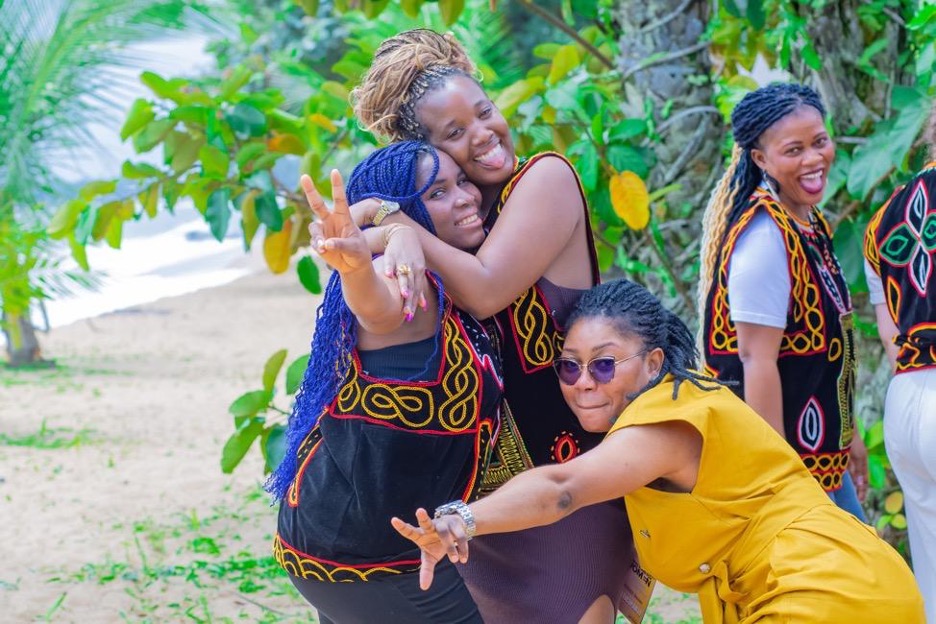
This moment is a milestone in Global Fund for Women’s strategy to better support gender justice movements by placing not only more money, but more decision-making power, in the hands of feminist movement members themselves. We have seen throughout our nearly forty-year history that feminist movements are at the heart of transformative change, shaking the foundations of entrenched economic, political, and cultural systems that perpetuate gender injustice.
While our support of gender justice movements is not new, what is new is that Global Fund for Women no longer decides where funding should go, or what success means—the movements we support do. Three years into our efforts to shift power to movements, we have reflections and inspiration to share with other funders who want to be more movement-led.
Reflection 1
Shifting power to movements means funders are facilitators and connectors, not authoritative experts
In early 2022, in consultation with some of our peers, we invited grassroots groups working on sexual and reproductive health, rights, and justice, including abortion in Francophone West and Central Africa to take part in a Movement Mapping Assessment Process, interviews, and validation workshops. We gathered recommendations on how activists envision a funding approach that would give them more decision-making power over resources. One interviewee from Côte d’Ivoire sums up what ended up being the consensus view:
The participatory initiative is the most appropriate approach to grantmaking to fuel the abortion rights movement because it avoids strategies in which youth movements are only used as implementers or are used just to finalize action plans, but [rather,] allows these movements to submit ideas and carry out initiatives by themselves to achieve their objectives according to the realities in their different communities.
Thus, we co-created the idea to have a participatory grantmaking Movement Committee that would make collective funding decisions to resource abortion rights movement work in West and Central Africa. Importantly, we are guided by the findings that the abortion rights movement is relatively young in this region, and so a committee of representatives should reflect the vibrancy and promise of youth leadership.
The Movement Committee was created through nominations and public voting. Groups part of the abortion rights movement in Benin, Cameroon, Guinea, and Côte d’Ivoire were invited to participate in the nominations and voting process in early 2023. Soon after elections were completed, the Movement Committee had its first Zoom meeting in March and got straight to work.
With intimate knowledge of the needs of their communities, the Movement Committee completed their inaugural round of participatory grantmaking, with funds provided by Global Fund for Women, in June, guided by their self-determined values: inclusion, audacity, impartiality, collaboration, and solidarity. These values are the guideposts for their ways of working together and parameters for decision-making.
Informed by a landscape study and their own expertise, the Movement Committee determined who to invite to submit a proposal for funding, what the eligibility criteria are, and how to structure the proposal. After receiving proposals, they met to deliberate and make decisions together about who would receive funding, in alignment with their stated values and a collaboratively designed rubric, and informed by salient priorities of the abortion rights movement.
Inspiration for other funders to take forward:
Widen the scope of data points that inform funding decisions. Who is making the decisions, and who is not?
Consider using—and adequately resourcing—collaborative approaches and tools that invite more perspectives into decision-making, such as nomination and voting of representatives, co-design and implementation of data collection instruments, and holding space and time for collective sensemaking and validation workshops.
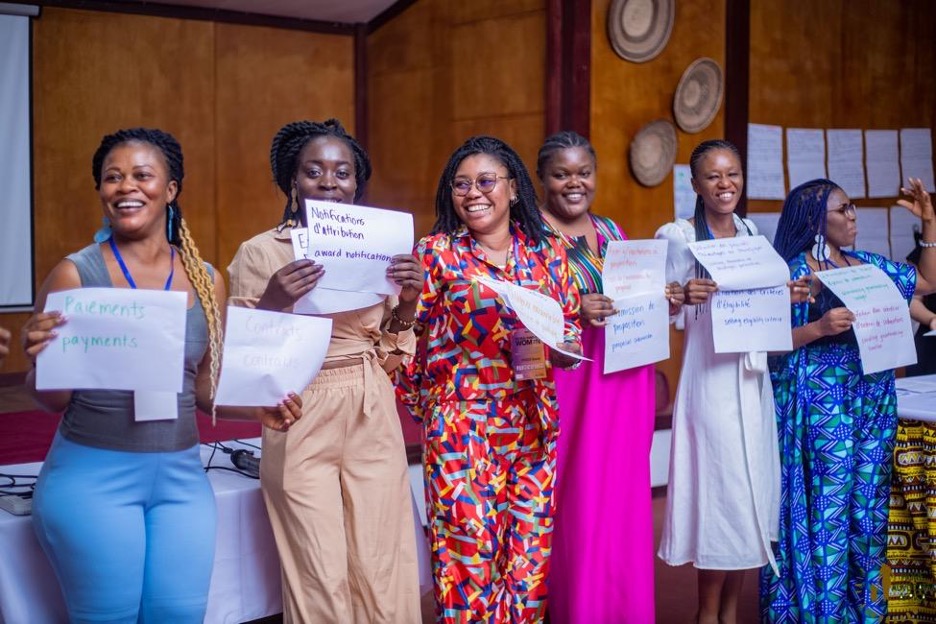
Reflection 2
Feminist learning and evaluation is a pillar of shifting power to movements, to sustain their critical work and to enhance collaboration
Critically, 95% of the groups receiving grants from the Movement Committee are new to Global Fund for Women and have never received a grant from us before. This is one metric of success the Movement Committee identified for themselves: to broaden the grantee partner pool and bring more funding to more groups in their communities.
The Movement Committee also wants to assess sustainability by tracking how this funding opens the door to additional sources of funding in the future for grantee partners. And they see their role as accompanying their fellow movement members to identify and support capacity-building needs, such as trainings on holistic safety and security for activists, to organize forums to exchange ideas and build strategies, to mobilize communities, and to strengthen feminist solidarity across borders—to ultimately improve and expand access to abortion in the region.
“Congratulations to us on the committee for setting clear goals and ideas,” said Aichatou, Movement Committee member from Côte d’Ivoire, reflecting on the committee’s collective approach to defining success.
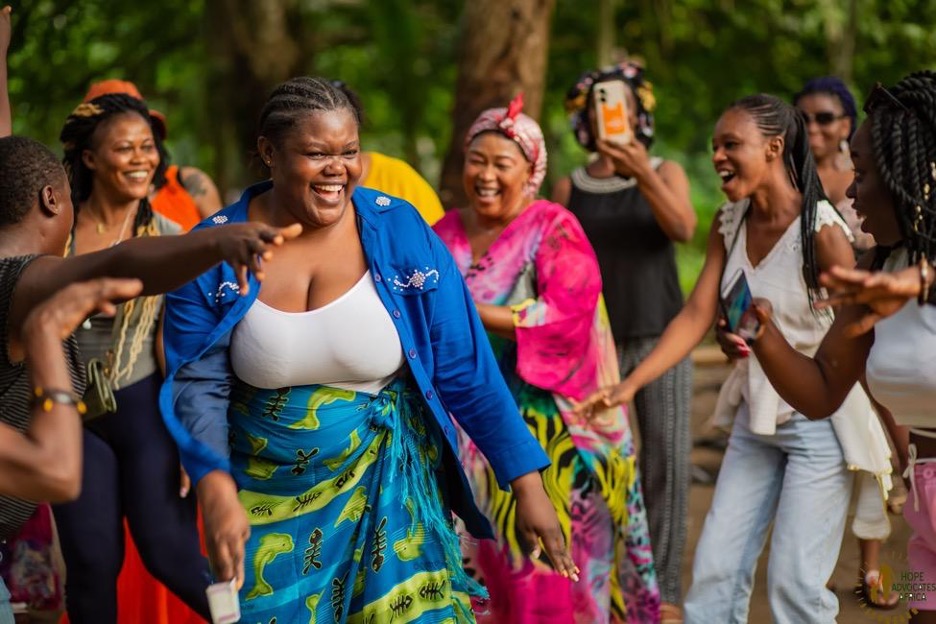
Bernadette, Movement Committee member from Guinea, explained that she learned a lot from the convening and now better understands the flexibility of Global Fund for Women’s approach to grantmaking, and learning and evaluation.
This is another pillar of Global Fund for Women’s approach to shifting power—we partner with movements on monitoring, evaluation, and learning (MEL) and knowledge production to make it useful for feminists, by feminists. The Movement Committee agreed, and so they decided to continue Global Fund for Women’s approach of trust-based reporting, which is simple and useful, coupled with virtual or in-person meetings where groups can share updates, learn, and connect.
These and other self-defined markers of progress or metrics of success are hallmarks of a feminist approach to learning and evaluation. Global Fund for Women’s feminist learning and evaluation approach incorporates power analysis and emphasizes being action oriented, so we prioritize efforts of data gathering and collective analyses to inform learning and strategic action, not simply to comply with a donor’s demands to track metrics that are burdensome and useless.
This applies to our own internal, organizational learning too. An important lesson we learned was to not impose our own timelines and needs onto a movement-led process, because it erodes activists’ ability to meaningfully participate, plan, or provide input. Though we know this in principle, when it came to putting it into practice, we fell short when it came to the initial round of participatory grantmaking completed in June. In adherence to our own fiscal year schedule, the Movement Committee had less time than ideal to shape the participatory grantmaking process. When it came time to review, the committee felt like there were questions and information missing from the proposal applications that they wished they had earlier. This is something we had the opportunity to discuss together at a later convening, reviewing each step of the process to make suggestions and changes, which Global Fund for Women will implement for subsequent rounds. Thanks to receiving flexible funding ourselves, we can be nimble and responsive to movements’ needs and show up as better partners, enhancing mutual accountability.
Inspiration for other funders to take forward
Fellow funders should embrace a learning mindset and be open to test approaches that challenge the status quo of top-down philanthropy.
Be willing to respond to lessons learned and incorporate insights into action. Invest in organizational change to update, remove, or create new operations and systems to be nimbler and more responsive to movement needs.
Don’t prescribe preset metrics of success. Rather, partner with movements to collectively define what progress would look like and how to collect information that is useful and accessible.
Facilitate and flexibly fund learning and reflection that enables strategic intention setting and visioning.
As adrienne maree brown says in Emergent Strategy:
“In movement work, I have been facilitating groups to shift from a culture of strategic planning to one of strategic intentions—what are our intentions, informed by our vision? What do we need to be and do to bring our vision to pass? How do we bring those intentions to life throughout every change, in every aspect of our work?”
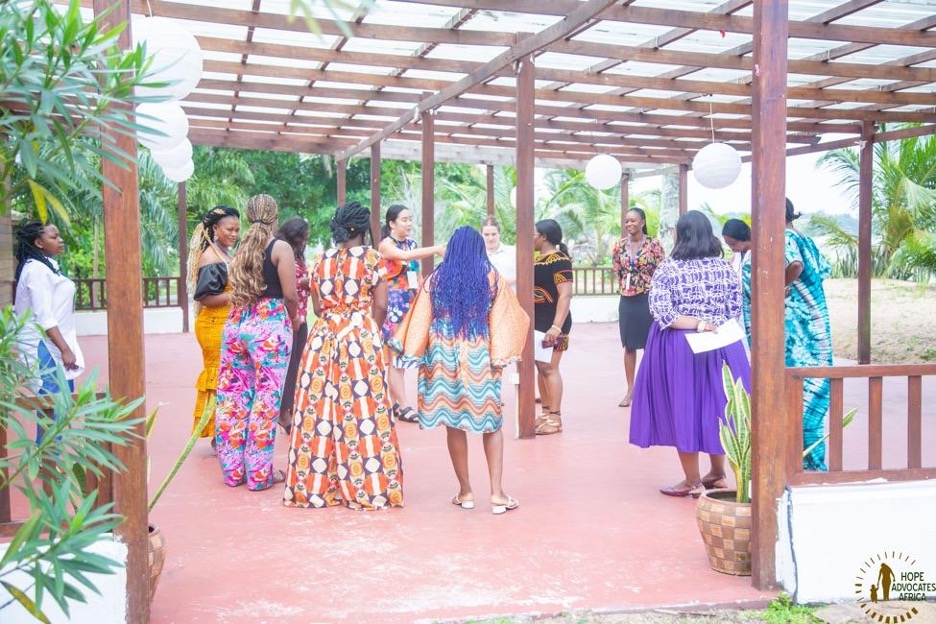
Reflection 3:
Power shifting is a process, as well as an outcome, so there are many opportunities to get started
As a feminist fund, we see our role as resourcing movements flexibly, without strings attached, in alignment with their self-identified priorities. One way we do this is through collaboration with Movement Committees, which take up more power over funding decisions.
As Global Fund for Women seeks to shift power, we want to be careful not to shift all the burden and even more labor onto our movement partners. They should be equipped to make decisions and not be weighed down by the operational and bureaucratic tasks inherent in grantmaking. From collecting applications to sending wire transfers and more, we still handle all the work of grantmaking operations but have begun updating how we do it in response to feedback from Movement Committees. We have also committed to enhancing other aspects of our work to improve our support to gender justice movements.
The Movement Committee convening in Kribi showed us what mutual accountability and power shifting can look like in practice. We share a practical example below.
I expected to receive an agenda we had to follow, but we got to contribute at every step.PriscaMovement Committee member from Côte d’Ivoire
Prisca is referring to how committee members filled in the details of how they’d like to best use our time together, after seeing a suggested outline from the Global Fund for Women team. With a flexible schedule that mixed working sessions and excursions to nearby landmarks, we had time to be productive and to rest. For grassroots activists working nonstop to respond to community needs, collective care and joy are essential ingredients for well-being and sustainability.
Power shifting is multi-dimensional and along a spectrum, so there are many entry points for funders to step back to make more space for movement leadership and collaboration. Based on the interests and capacity of movement leaders, they should be weighing in on practicalities such as how we spend time together, along with more consequential decisions like exactly where and how to send funds.
Inspiration for other funders to take forward
Describe different gradients of power shifting, such as: Informing, Consulting, Advising, or Deciding. These gradients will help us to consider the who, how, and for what of each decision
Build fluency and comfort with assessing consensus, disagreement, or tension between perspectives and actively, regularly engage with differing viewpoints
Budget the necessary financial, time, and human resources to cultivate trust, mutual accountability, and collective care—key ingredients in the process of genuinely shifting power
Confronting the status quo takes experimentation and can breed doubts, but moving through uncertainty with trust, transparency, and open communication is vital to fostering the partnerships needed to transform power.
“Through a participatory process, this [in-person convening] clarified questions I had about committee functions,” said Hermine, Movement Committee member from Benin. “This is a good approach to make decisions.”
Professor and feminist writer Ama Ata Aidoo said: “Time by itself means nothing, no matter how fast it moves, unless we give it something to carry for us; something we value.” As Global Fund for Women works toward our mission to fund bold, ambitious, and expansive gender justice movements to create meaningful change that will last beyond our lifetimes, we must be bold ourselves and willing to transform our practices and create new patterns, just like how social movements envision new futures and mobilize to make them reality.
“We solidified bonds as a committee and we see commonalities across our countries,” said Nafissate, Movement Committee member from Benin. “This gives us credibility and we are able to collaborate equitably to set the way for the future.”
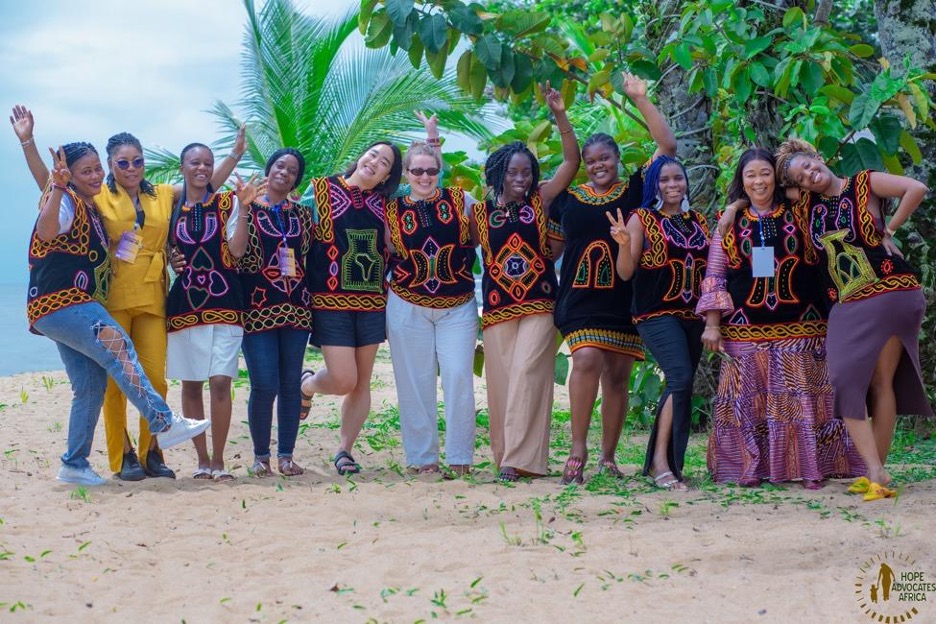
Photos courtesy of both Suiseka Media and Hope Advocates Africa.
